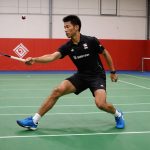Unlocking Peak Performance: Effective Sleep Strategies for Athlete Recovery
The Crucial Role of Sleep in Athletic Performance
When it comes to athletic performance, many factors come into play, but one of the most overlooked yet critical components is sleep. For athletes, whether professional or amateur, sleep is not just a necessity but a strategic tool that can significantly enhance their performance, recovery, and overall health.
Sleep plays a crucial role in several aspects of athletic performance. It affects the body’s ability to recover from intense training, rebuild muscle, and restore energy levels. Without adequate sleep, athletes can experience decreased athletic endurance, increased cardiovascular strain, and impaired cognitive function, including decision-making, concentration, and reaction time.
Have you seen this : Building Mental Toughness: Strategies for Athletes to Bounce Back After Major Sports Setbacks
The Impact of Sleep Deprivation on Athletes
Sleep deprivation can have severe consequences for athletes. Here are some key ways in which lack of quality sleep can impact athletic performance:
Decreased Cognitive Function
Sleep disruptions can result in decreased cognitive abilities, affecting decision-making, concentration, and reaction time. These are crucial aspects of athletic performance, especially in competitive sports where split-second decisions can make all the difference.
In parallel : Essential Strength Exercises: Your Guide to Preventing Shoulder Injuries for Athletes
Impaired Muscle Recovery
Poor sleep quality can negatively affect muscle repair and growth, hormonal regulation, and the immune system. This hinders performance improvements and can lead to increased fatigue and reduced energy levels, making it difficult for athletes to maintain consistent and effective training regimens.
Increased Fatigue and Reduced Energy
Sleep apnea and other sleep disorders can compromise oxygen delivery to muscles and organs, leading to decreased athletic endurance and increased cardiovascular strain. This can result in increased fatigue, affecting not only performance during competition but also the ability to recover adequately.
Mental Health and Overall Well-being
Sleep deprivation can also impact mental health, leading to increased stress, anxiety, and mood disturbances. This can further exacerbate physical symptoms and hinder overall athletic performance.
Practical Tips to Optimize Sleep and Recovery
To ensure peak performance, athletes need to prioritize sleep and implement strategies that enhance sleep quality. Here are some practical tips:
Set a Consistent Sleep Schedule
Maintaining a regular sleep schedule is essential. Athletes should go to bed and wake up at approximately the same time each day, even on weekends. This helps the body’s internal clock to stay in rhythm, making it easier to fall asleep and stay awake during the day.
Create a Restorative Sleep Environment
The sleep environment should be dark, cool, and quiet. Using blackout curtains, a white noise machine, and keeping the room temperature between 60-67°F can help signal to the body that it’s time to rest. Avoiding caffeine, alcohol, and screen exposure at least an hour before bed is also crucial.
Focus on Pre-Sleep Nutrition
Avoiding heavy meals or sugary snacks before bed can help prevent sleep disruptions. Opting for a small, protein-rich snack, such as cottage cheese or nuts, can keep blood sugar levels steady and support muscle repair during sleep.
Manage Stress Effectively
Chronic stress can significantly impact sleep quality. Practicing deep breathing exercises, progressive muscle relaxation, or mindfulness meditation before bed can help calm the mind and prepare the body for restorative sleep.
Healthy Sleep Habits for Athletes
Implementing healthy sleep habits is crucial for athletes. Here are some key habits to adopt:
- Limit Caffeine and Alcohol: Both can interfere with sleep quality. Athletes should log their caffeine intake to determine the best time to stop consuming it and avoid excessive alcohol consumption.
- Unplug Before Bed: Electronic devices can keep athletes up at night. Leaving electronics out of reach and using night mode or blue light filters can help reduce distractions.
- Workout Early: Exercising in the morning or early afternoon can help achieve deeper sleep. Avoiding workouts close to bedtime can prevent the body from getting the rest it needs.
- Use Essential Oils: Essential oils like lavender, valerian root, and roman chamomile can promote relaxation and improve sleep quality.
Advanced Recovery Techniques
In addition to healthy sleep habits, athletes can benefit from advanced recovery techniques:
Active Rest
Active rest involves light activity during rest days, such as an easy swim or a gentle walk. This can promote recovery by increasing blood flow to the muscles and helping clear lactate that builds up during intense workouts.
Cryotherapy
Cryotherapy, or cold therapy, involves briefly exposing the body to freezing cold temperatures. This can cause blood to retreat from the extremities and skin, only to rush back after the cold exposure, potentially improving athletic performance by reducing inflammation and enhancing recovery.
Stretching and Nutrition
Stretching can help improve mood and psychological well-being, and it can also correct and maintain movement patterns to mitigate overextension and future injury. A healthy diet, staying hydrated, and ensuring adequate calorie and protein intake are vital for muscle repair and overall athletic performance.
Communication and Support
Effective communication between athletes, coaches, and support staff is essential in managing sleep apnea and promoting peak athletic performance.
Promoting Sleep Health Awareness
Coaches should promote sleep health awareness and create an environment where athletes feel comfortable discussing sleep-related concerns. This includes recognizing the impact of sleep apnea on performance and encouraging athletes to seek diagnosis and treatment if necessary.
Adapting Training Schedules
Coaching staff should be prepared to adapt training schedules or load management strategies to accommodate athletes experiencing sleep disturbances. This ensures optimal performance levels and prevents burnout.
Incorporating Sleep-Focused Training Programs
Coaches can incorporate sleep-focused training programs that prioritize sleep health and educate athletes about the importance of sleep for performance and recovery. This can include workshops, seminars, or even integrating sleep education into the training curriculum.
Real-World Examples and Success Stories
Several athletes and sports figures have highlighted the importance of sleep in their success stories.
-
Mikaela Shiffrin: The world’s best female skier reportedly sleeps nine hours each night and naps at least an hour every day. Her commitment to sleep is a testament to its importance in achieving peak performance.
-
Professional Athletes: Many professional athletes prioritize sleep as part of their training regimen. For instance, some athletes use sleep tracking devices to monitor their sleep quality and make informed adjustments to their sleep habits.
Key Takeaways and Actionable Advice
Here are some key takeaways and actionable advice for athletes looking to optimize their sleep and recovery:
Monitor Sleep Quality
Use wearable technology to gain insights into your sleep stages and make informed adjustments. Monitoring sleep quality, not just quantity, is crucial for ensuring that you are getting the restorative sleep your body needs.
Avoid Overtraining
Include active recovery and listen to your body’s signals to ensure long-term progress. Overtraining without adequate rest can lead to burnout and decreased performance.
Prioritize Sleep as Much as Training
Treat sleep with the same respect you give to your workouts and nutrition. Aim for 7-8 hours of sleep each night to allow your body to recover and make the most out of your training.
Table: Comparing Sleep Strategies for Athletes
| Strategy | Description | Benefits | Potential Drawbacks |
|---|---|---|---|
| Consistent Sleep Schedule | Go to bed and wake up at the same time each day. | Improves body’s internal clock, easier to fall asleep and stay awake. | Can be challenging to maintain during travel or irregular schedules. |
| Restorative Sleep Environment | Keep the room dark, cool, and quiet. | Signals the body to rest, improves sleep quality. | Initial investment in blackout curtains, white noise machines, etc. |
| Pre-Sleep Nutrition | Avoid heavy meals, opt for protein-rich snacks. | Keeps blood sugar levels steady, supports muscle repair. | Requires planning and discipline in dietary habits. |
| Active Rest | Engage in light activity during rest days. | Increases blood flow, helps clear lactate. | May not be suitable for all types of injuries or recovery needs. |
| Cryotherapy | Brief exposure to freezing cold temperatures. | Reduces inflammation, enhances recovery. | Access to cryotherapy facilities may be limited, and it can be expensive. |
| Stretching and Nutrition | Post-workout stretching, healthy diet. | Improves mood, corrects movement patterns, supports muscle repair. | Requires consistent effort and may not show immediate results. |
Quotes from Experts
-
“Being an elite athlete is a 24-hour profession, and sleep and recovery are integral to optimal performance,” – Meeta Singh, M.D., sleep medicine specialist at Henry Ford Health System.
-
“Recovery strategies are a key part of athletic performance. Professional athletes, and increasingly, average active adults, are leveraging new recovery therapies to speed recovery time, reduce inflammation, and practice self-care.” – Brian George, performance technician at the Center for Sports Performance and Research.
-
“Sleep is the body’s number one recovery tool. It’s where the magic happens, muscles repair, hormones reset, and your nervous system recovers from the stress you’ve thrown at it all day.” – From an article on prioritizing sleep for optimal muscle recovery and performance gains.
Unlocking peak performance for athletes is not just about intense training and rigorous workouts; it is equally about ensuring quality sleep and effective recovery strategies. By prioritizing sleep, creating a restorative sleep environment, managing stress, and incorporating advanced recovery techniques, athletes can significantly enhance their physical performance, cognitive function, and overall health.
Remember, recovery isn’t a setback; it’s a setup for optimal performance. By respecting the body’s need for recovery and implementing these strategies, athletes can achieve sustained success and peak performance in their respective sports.











